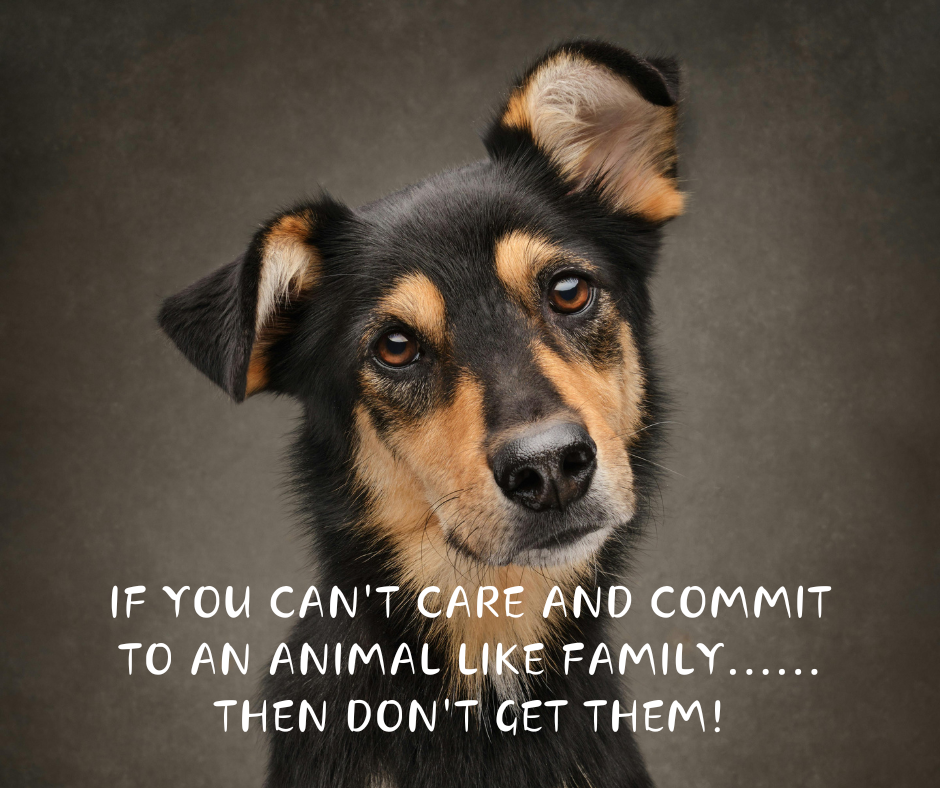
ANNUAL PET SURRENDERS AND ANIMAL AS GIFTS REACH A PEAK DURING THE FESTIVE SEASON.
As the festive season approaches, animal welfare organizations brace themselves for an unfortunate and predictable surge in surrendered animals. For many, this time of joy is overshadowed by the heartbreaking reality of pets being abandoned or handed over with flimsy excuses. Some claim to be moving and unable to take their pets along, while others cite behavioural issues that were never addressed or even fabricated allergies. Others, the fact that the animal is getting old. Although there might be real circumstances that lead to it, I find it strange that it is always before the Christmas holiday time that these numbers rise drastically. The truth often lies in convenience—an unwillingness to accommodate these loyal companions during the holidays and commit to them for their whole lives.
Even more distressing is “convenience euthanasia,” where perfectly healthy animals are put down simply because they no longer fit into their owner’s holiday plans. This callous act disregards the bond of trust and dependency pets place in their human families. The festive season, meant to be a time of generosity and compassion, becomes a grim period for countless innocent lives.
Food for thought: Giving up animals because they are inconvenient or getting older sets a dangerous precedent as you are not getting younger yourself, are you?
LOST ANIMALS
On top of this, when people go away and fail to make proper arrangements for their animals, it creates a host of problems that endanger the animals and burden rescue organizations during the already overwhelming season of abandonment. Unattended pets are prime targets for theft, especially dogs, which are often stolen for purposes like breeding or fighting. Furthermore, without secure supervision, animals are more likely to escape during thunderstorms or fireworks, as these loud noises can cause extreme stress and panic, leading to them running away in search of safety. They may also get injured or sick at home with no one to help them. Many of these animals end up injured, lost, or worse. This negligence adds to the strain on shelters and rescuers, who are already dealing with an influx of abandoned pets during the holiday season, highlighting the critical importance of responsible pet care and planning.

Amid this tide of neglect, Silly Season also includes another troubling trend: the rush to acquire animals as Christmas gifts. Below is a reprint from 29 November 2023. Also, read more about the sacrifice of animals in war.
PETS SHOULD NOT BE GIVEN AS GIFTS OR BE A SURPRISE
The holiday season often tempts well-meaning individuals to gift animals—puppies for Christmas, the same with bunnies for Easter, or kittens for birthdays. However, this seemingly heartwarming gesture can have serious consequences for both the animals and their unsuspecting recipients. In this article, we will explore the reasons behind this cautionary stance and delve into the essential considerations for responsible pet ownership.
WHY YOU SHOULD NOT GIVE ANIMALS AS GIFTS
Whether acquired for personal satisfaction or intended as a surprise for a loved one, purchasing or taking animals on a whim is a risky endeavor. Here’s why:
Animals Are Sentient Beings, Not Commodities: Animals should never be treated as mere commodities or impulse buys. They are sentient beings with emotions and needs, and gifting them sends the wrong message, perpetuating the idea that they are disposable toys.
Pets Are Long-Term Commitments: Animals typically live 10-20 years or more for some species, requiring a substantial commitment of time, effort, and resources. Impulse purchases can lead to neglect or abandonment when the reality of this commitment sets in.
Shelter Overcrowding: Studies indicate that more than 10% of animals given as gifts end up in shelters shortly thereafter. In an already overwhelmed animal welfare system, this percentage adds strain, making it crucial to avoid unnecessary contributions to shelter overcrowding.
Children’s Interest and Responsibility: Children’s fleeting attention spans often align better with stuffed toys than living beings. The responsibilities of caring for a pet, such as daily exercise and attention, can be overlooked or underestimated.

ESSENTIAL CONSIDERATIONS BEFORE “GIFTING” A PET
Before deciding to gift an animal, it’s imperative to consider various factors to ensure the well-being of both the recipient and the pet:
Interest: Has the person expressed genuine interest in owning a pet?
Cost & Resources: Is the recipient financially stable and willing to commit to the financial responsibilities of pet ownership, including food, supplies, and veterinary care?
Time & Energy: Does the recipient have the time and energy to dedicate to daily care, interaction, and play? Consider their activity level and how often they are at home.
Space: Evaluate the living environment to ensure it is suitable for the specific needs of the animal. Check for any restrictions on pets.
The Future: Consider future plans, such as potential relocations, family expansions, or changes in financial situations.
Compatibility: Assess the recipient’s lifestyle and choose a pet that aligns with their needs and capabilities, especially energy levels.
Age and Health: Ensure that the chosen pet is appropriate for the recipient’s age and that there are no health conditions that may conflict with pet care.
Other Pets: Consider whether the new animal will get along with existing pets in the household.
HOW TO POLITELY DECLINE OR HANDLE AN UNWANTED PET GIFT
Politely declining or addressing an unwanted pet gift is crucial to avoid unintended consequences for the animal. Here’s how:
Express Gratitude: Thank the giver sincerely for their thoughtful gesture.
Politely Decline: Clearly communicate that you are not ready for the responsibility of pet ownership at this time.
Responsible Surrender: As a last resort, if the giver insists, you can take the pet and responsibly surrender it to a shelter that can find a suitable home.

ADDITIONAL GUIDELINES FOR RESPONSIBLE PET “GIFTING“.
If you are still considering giving a pet as a gift, adhere to these guidelines:
Direct Family Only: Limit pet gifts to direct family members who have expressed genuine interest in owning a pet.
Take Responsibility: Be willing to be the backup home for the pet if the recipient is unable to care for it.
Avoid Surprises: Never surprise someone with a pet; instead, ensure the new owner is prepared for the responsibility and all the animal’s needs.
Avoid Impulse: Resist the urge for impulse pet purchases. Consider adopting from a local shelter, and promoting responsible adoption processes.
The decision to gift an animal should not be taken lightly. The life of an innocent being is at stake, and your responsibility as a potential guardian is paramount. Remember, adopting from reputable organizations reduces the strain on shelters and contributes to responsible pet ownership.
THINK TWICE BEFORE GIFTING A PET
In conclusion, before presenting a pet as a gift, carefully weigh the implications and responsibilities involved. If you are not prepared to be a responsible pet owner or if the recipient is not ready for the commitment, it’s best to reconsider and not gift the animal. The joy of pet ownership should come from a well-thought-out decision, ensuring a happy and healthy life for both the pet and their owner.
If you find yourself in the heartbreaking position of needing to give up your pet, please do so responsibly. Reach out to a reputable organization (in advance) that can ensure your animal is placed in a safe and loving home. Don’t walk away once the animal is no longer in your care—offer to cover their food and other needs for a meaningful period. One or two months is not enough when you add to an already overwhelmed system. And above all, remember that these organizations do their best in impossible circumstances. Rudeness or hostility towards those trying to help only makes the process more difficult for everyone, especially the animals.
Animals are family, treat them with love, care, and compassion!
Join us again next week as we explore the world of our pets and how we can improve their lives.
WHEN YOU KNOW BETTER, DO BETTER.